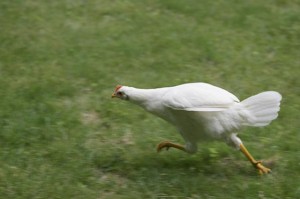 Returning to my dissertation planning for the umpteenth time, found this year-old query (dated 10/4/11) from my advisor Henry Jenkins and my stream-of-consciousness manifesto of a reply. 373 days later — have I attained any more clarity?
Returning to my dissertation planning for the umpteenth time, found this year-old query (dated 10/4/11) from my advisor Henry Jenkins and my stream-of-consciousness manifesto of a reply. 373 days later — have I attained any more clarity?
Participatory learning & skills-based curricula approaches
HJ: Is your central goal here one of appraising educational interventions? Developing a model or approaching for integrating SEL and NML frameworks? Critiquing the limits of current educational paradigms? Or some combo of all of these?
LF: I guess some combo…
Thesis: Social change interventions, whether explicitly educational or otherwise, should employ strategies that are versatile/adaptable and address the whole person; such strategies include: creating a culture of participatory learning, and adopting means and ends oriented towards primary skills development.
First, I think that there’s an element of education in any social change intervention. If it’s about nutrition, or hygiene, or reproductive health, information is still given; the facilitators hope that people will learn and change their behavior.
Now, didactic messaging isn’t very effective. (And we know that didactic teaching isn’t very effective.) In terms of social change interventions and communication techniques, some practitioners have shifted from the left brain/information-driven/explicit approach and recommended right brain/emotionally-driven/subtle approach. They usually use narrative devices (either identification with characters or involvement with narrative); this includes but is not limited to entertainment-education.
However, this approach is still top-down — it’s still a group of people who know best (often outsiders, but not necessarily/exclusively) creating products for consumption by others. There’s been an analogy to “chocolate-covered broccoli” — embedding the “nutrition” (the information) in an attractive casing. You might not even know you’re eating broccoli!
The assumption is that people don’t want to eat broccoli — it isn’t their favorite food, they wouldn’t eat it without the mitigation or deception of chocolate. They won’t engage in “good-for-you” practice. But what if we harnessed audience member’s favorite food? What if we facilitated audience members’ preparation of their own nutrition, if you will — we put em in a kitchen full of produce and let them whip up any salad/stew/pie they wanted? The original appeal of the favored product plus the fact that they made it themselves predicts that the people will eat it. There’s another way to get your nutrition. There was no deception (and so discovery and rejection is not an issue), no dependence on external provision (while a produce-stocked kitchen and mentorship in terms of preparation do require outside resources, these might be easier to access than the exotic chocolate-covered broccoli), and less passivity…
Okay, so to bring that out of the metaphorical and back into the actual… What I’m talking about is empowering people to pursue their own interests and objectives, and that empowerment is two-fold: mentoring them to take on that task, and allowing them to do so.
So in the case of social change interventions…
I still think that EE programming is effective… But some research suggests that it’s interpersonal communication, the conversations triggered by these stories, that robustly predicts behavior change. And there’s always the question of self-efficacy, which is comprised of attitude towards behavior, subjective norms, and perceived behavioral control. So, while stories are important for innumerable reasons, they can’t be the sole element of the intervention; indeed, they aren’t. EE programmers usually put out: transmedia properties (which are still stories, largely, but it’s a step towards expanding from a single-product “cure”); listening groups; curricula for schools and non-profits; contests; exposition at the end of the program (e.g., “If you or someone you know is suffering from depression, contact this hotline…”).
Not only is participation rich but it’s increasingly becoming the norm. People expect options for engagement and co-creation — commenting + creating (from creating outcomes based on texting votes to creating multimedia pieces). Even before the ICT boom, or in places where its reach is hardly felt, audiences send fan letters to EE programs. There’s something in people, I think, that yearns to speak up and control. We want to matter.
(Not everyone CAN and DOES engage and participate at the same level, and there’s the problematic participation gap. But anyway…)
What this boils down to is that we need to know how to deal with people — how to support them so that they can access the stuff we believe in as well as access the stuff THEY believe in. So let’s set the conditions for optimal learning and growth so that people can thrive. That’s what I’m saying.
I think that educational experiences should be structured so that this culture of participatory learning is present, and so that primary skill development is pursued and valued.
To come back to the original Qs:
Is your central goal here one of appraising educational interventions?
Well, I’m not sure what appraising means. I don’t want to do an evaluation, or a meta-analysis… I guess I’m building a theoretical case for restructuring educational interventions, and contributing a model, and sharing how it’s worked in practice.
Developing a model or approaching for integrating SEL and NML frameworks?
Yes, it does do that too.
Critiquing the limits of current educational paradigms?
Perhaps… Certainly we know the didactic “sage on stage” model is passe. This is a new way to think about culture, means and goals. “New.” Fits in with a lot of other folks’ thoughts, I’d imagine, but is still novel in some respects…

